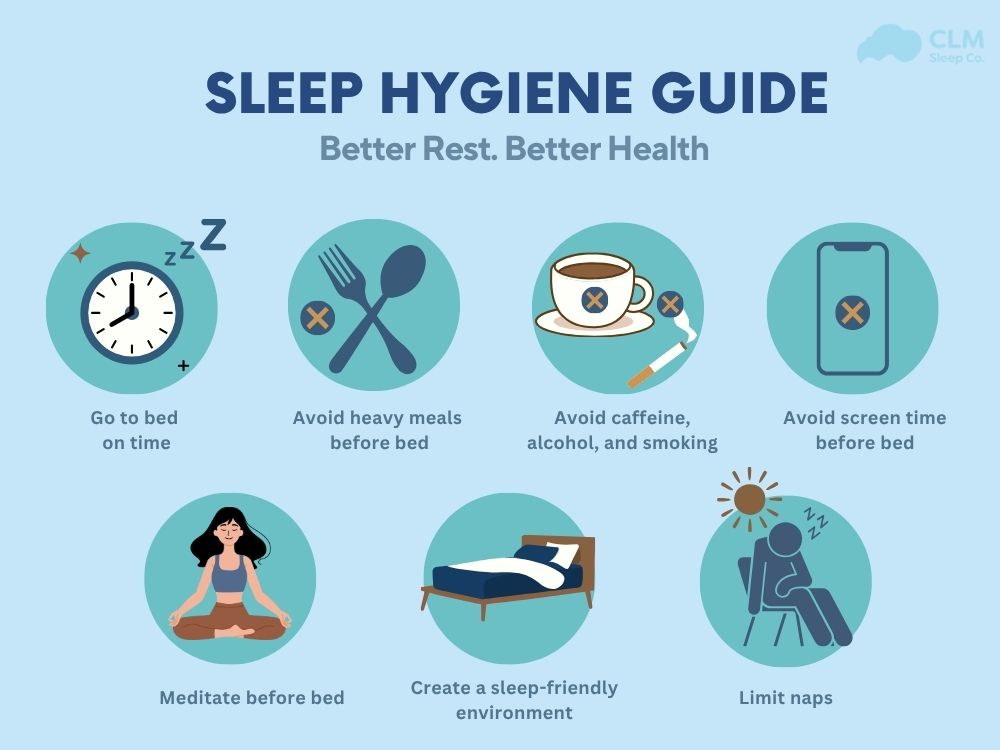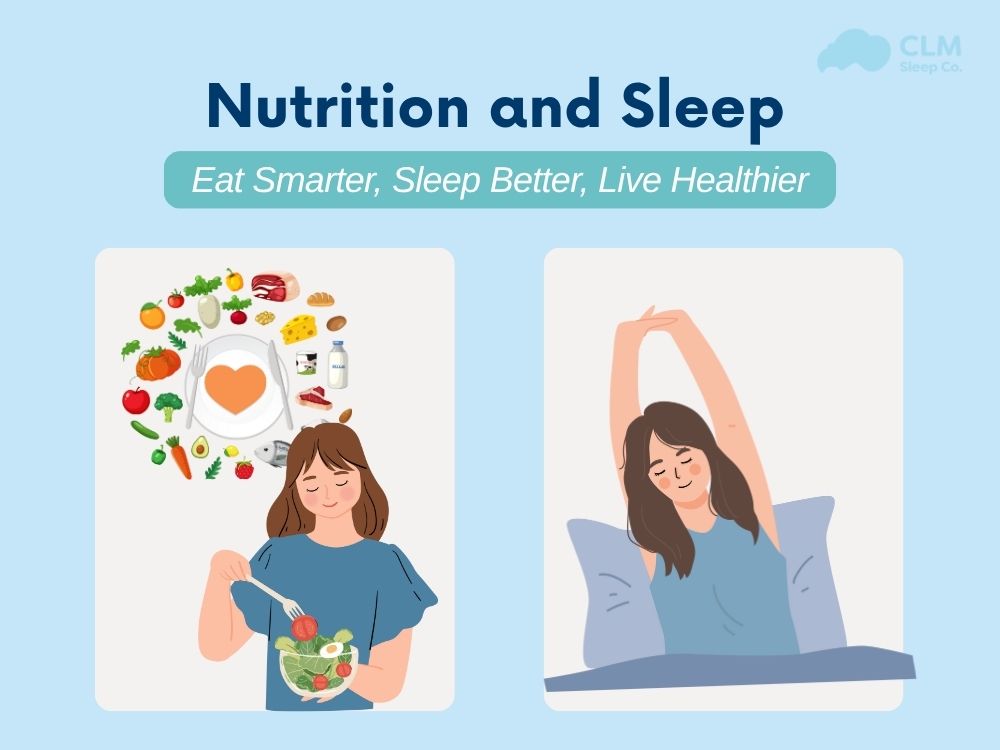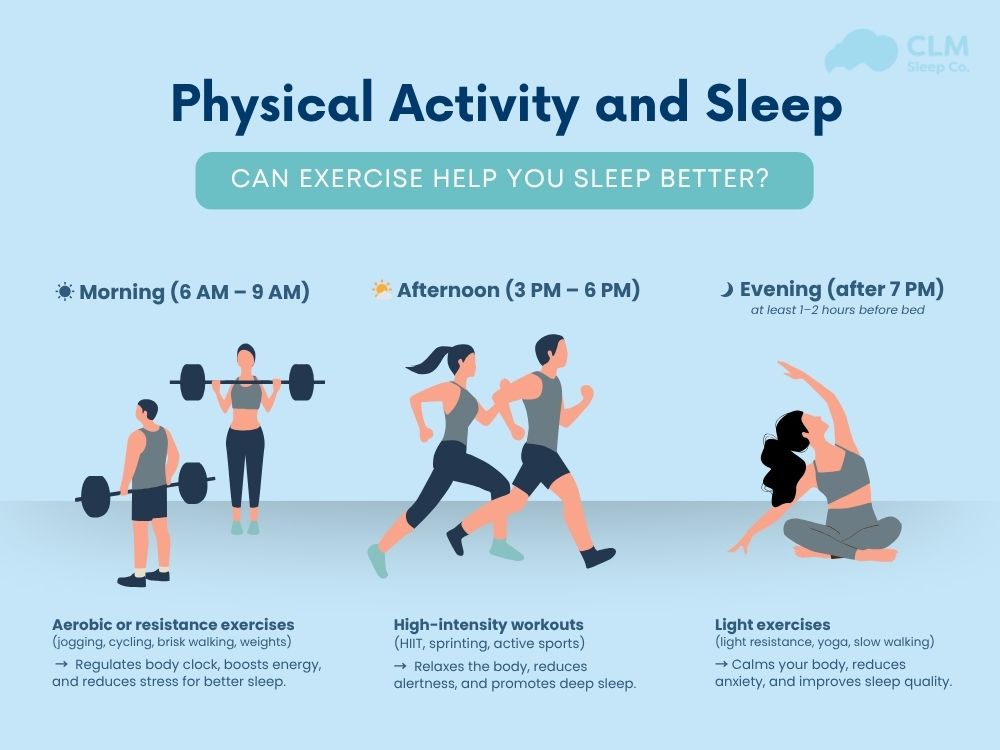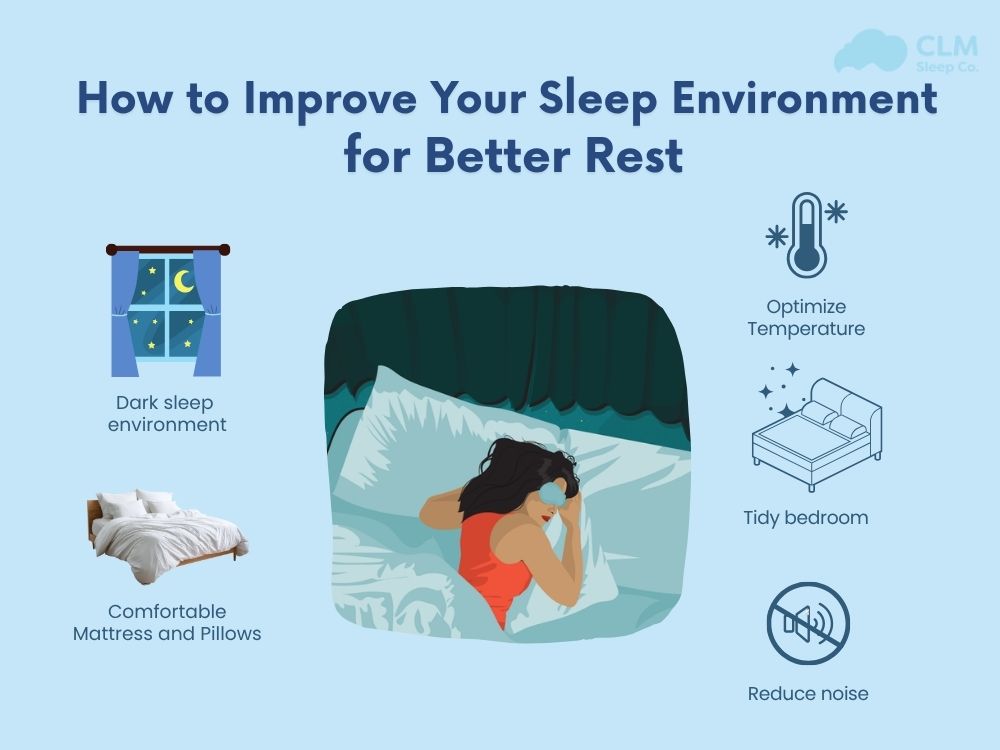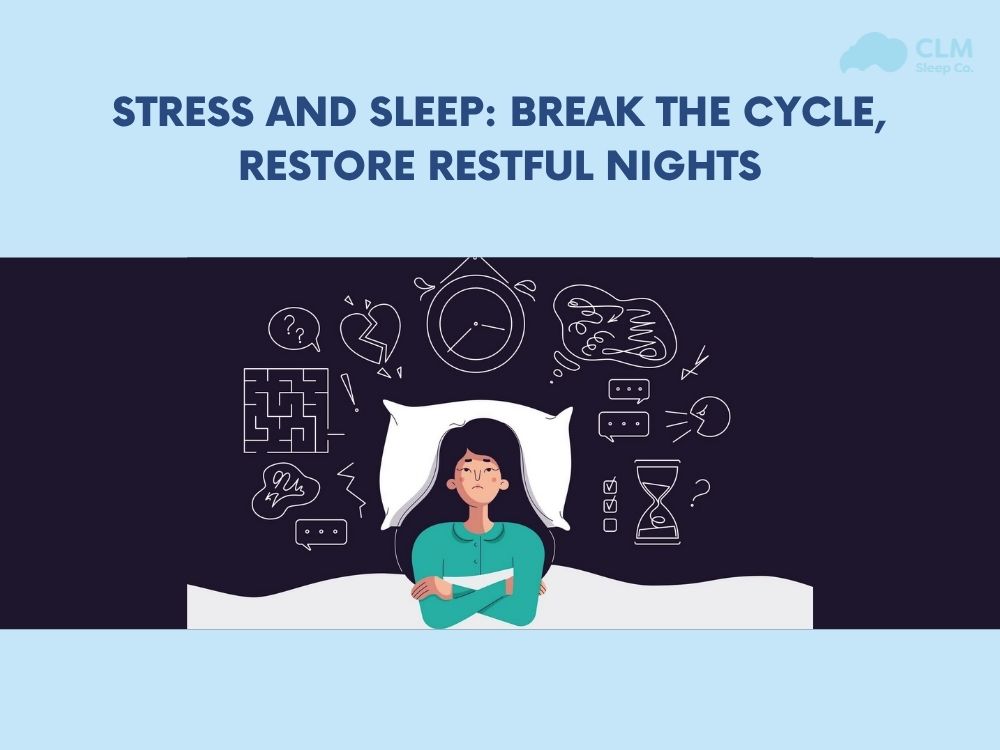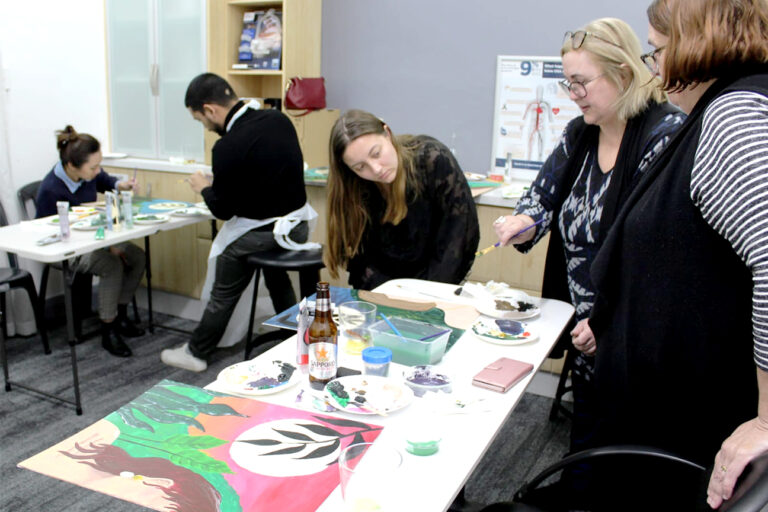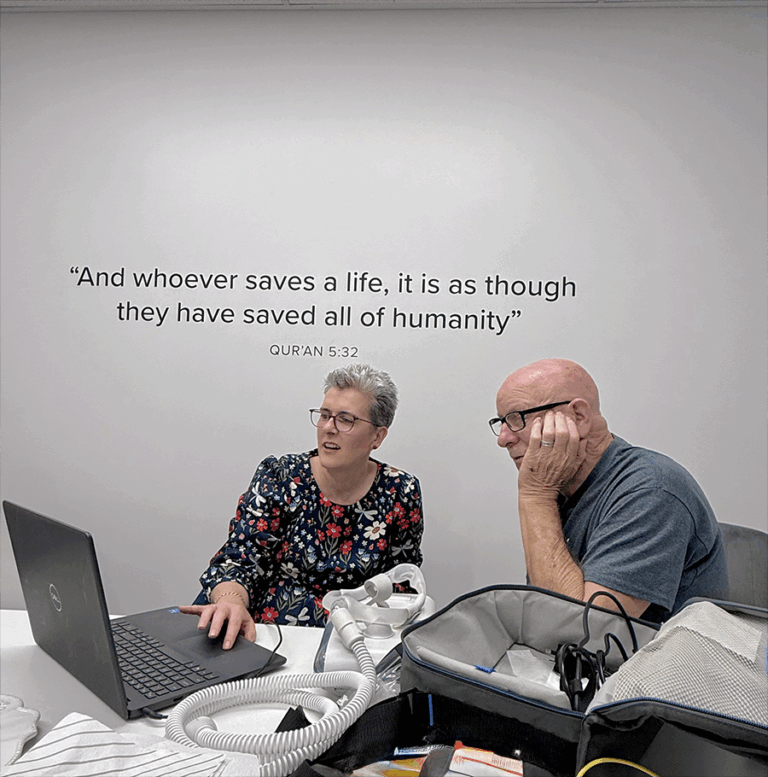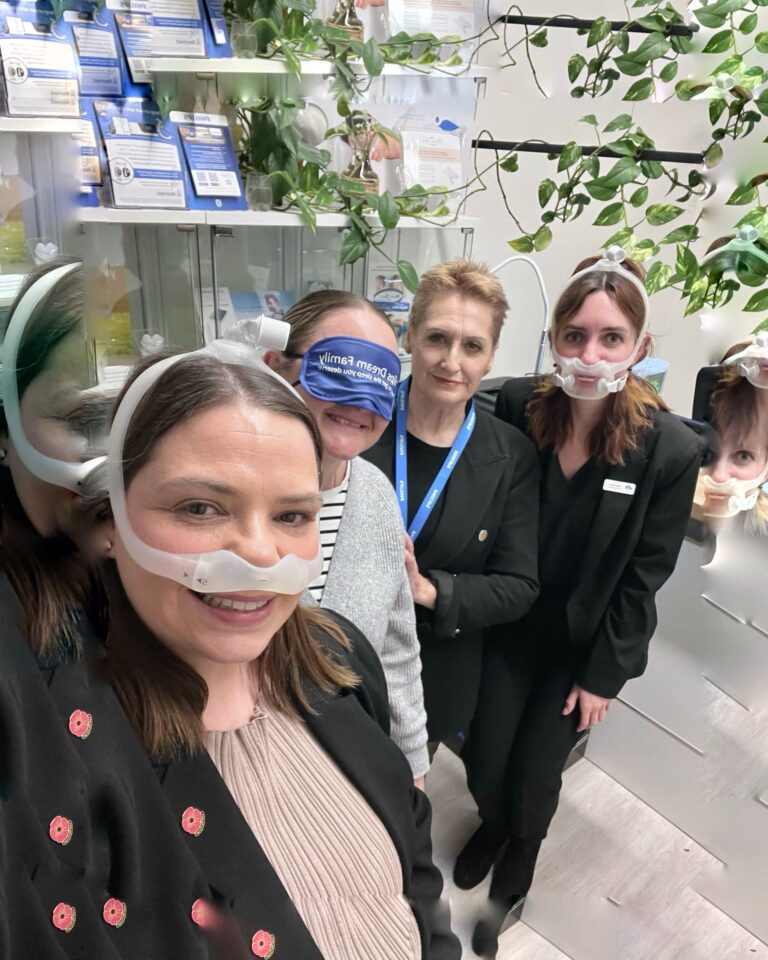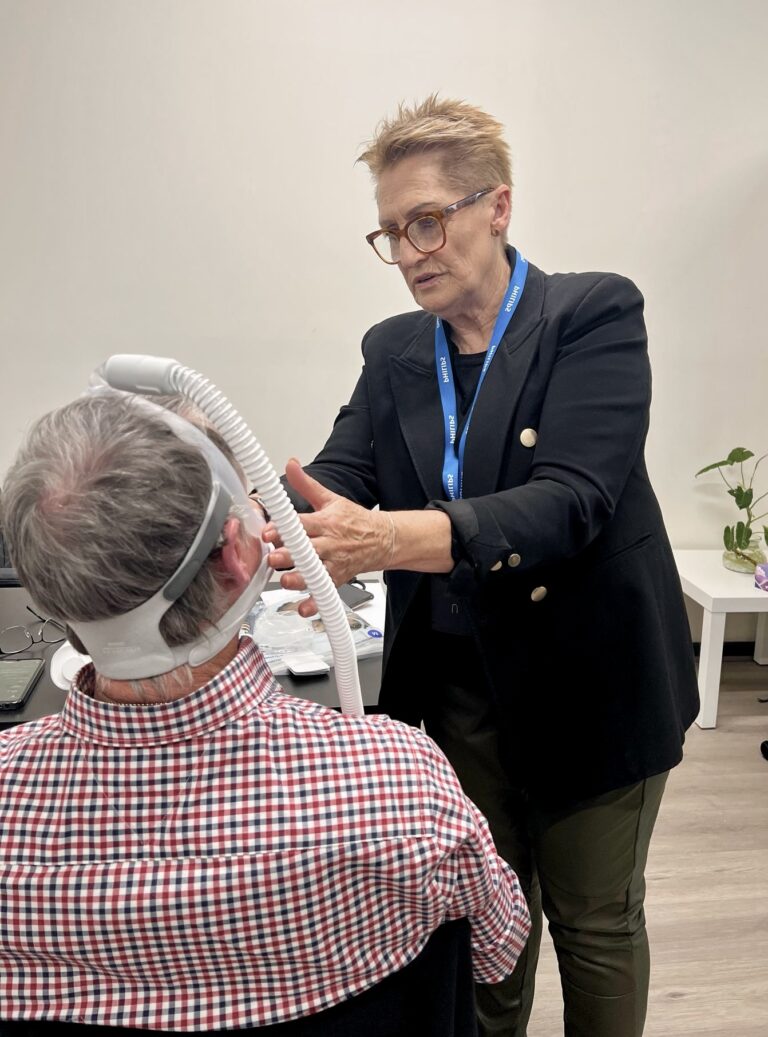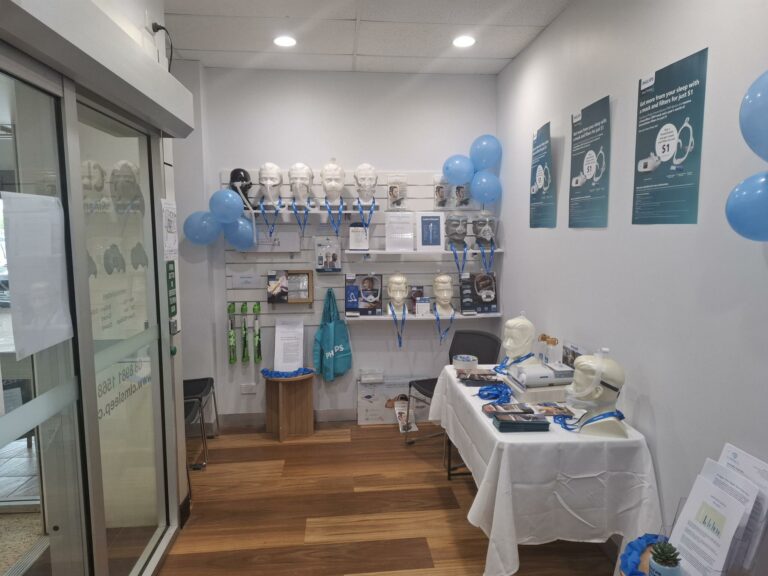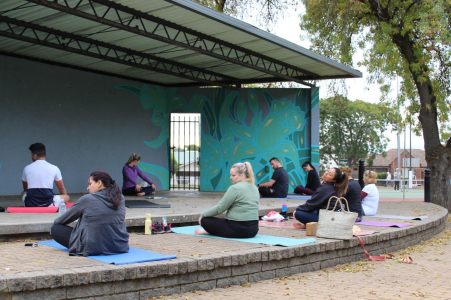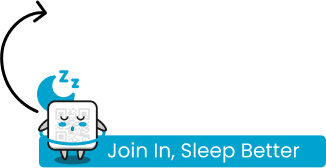Sleep is a solid foundation for every aspect of health, from physical to mental. In a world that is always bustling with continuous notifications and relentless stress, a good night’s sleep is gradually becoming a luxury for some people in life. However, by practicing sleep hygiene you can absolutely change this. At CLM Sleep, we believe that understanding and applying the principles of sleep hygiene is the key to improving your quality of life. This article will provide a comprehensive guide to help you build good habits for a complete sleep, while also delving into the scientific reasons behind each piece of advice.
Sleep Hygiene Overview
What is sleep hygiene?
Sleep hygiene refers to a set of daily habits, routines and environment adjustments designed to optimize your sleep. Imagine it as a personal “toolkit” that helps you create a healthy sleep environment and routine, in sync with your body’s natural circadian rhythm. It includes everything, from how you prepare for sleep to the physical conditions of the bedroom. Sleep hygiene isn’t a complex method, it’s about adopting simple methods, science backed habits that help your body easily fall asleep and maintain high quality rest.
It’s simpler, you can compare to make it easier to understand in the case of a person with good sleep hygiene who will turn off electronic devices, read a book in dim light and go to bed at the same time every night. On the contrary, a person considered to have bad sleep hygiene will lie in bed watching movies or scrolling through social media on their phone, drink coffee after dinner, and have an irregular sleep schedule. Over time, these negative habits send conflicting signals to the brain, making it difficult for the body to transition into rest mode.
Why Sleep Hygiene Matters
Why do we need sleep? Most of us adults understand the importance of sleep for health as well as the immune system of the body. Based on the World Health Organization (WHO), nearly 45% of adults worldwide don’t get enough sleep. In the US alone, sleep deprivation costs the economy over $400 billion annually due to lost productivity and health issues. These numbers demonstrate that sleep is not just a personal issue but also a public health crisis. Practicing sleep hygiene not only helps you feel more alert during the day but also serves as a disease prevention strategy, enhances mental health, and even living longer.
Read more: How Many Hours of Sleep Do We Really Need?
Principles of Sleep Hygiene
Consistent Sleep Schedule
Your body is governed by the circadian rhythm, an internal biological clock that operates most effectively when it’s kept on a regular schedule. Maintaining a consistent bedtime and wake-up time, even on weekends, will help reinforce this rhythm, letting your body know when to produce melatonin (the sleep hormone) and when to produce cortisol (the wakefulness hormone).This makes it easier to fall asleep and wake up naturally. To create a good sleep schedule requires commitment and discipline.
Tips to reset your internal clock:
- Set a fixed bedtime: Choose a bedtime that you can stick to consistently, even if you don’t feel tired right away. Then, set up a “relaxation alarm.”
- Avoid “social jetlag: This is a phenomenon that occurs when you sleep in on the weekend, disrupting your body’s biological rhythm. It can make you feel groggy and make it harder to fall asleep on Sunday night. Try not to sleep in more than one hour compared to your usual schedule.
- Leverage natural light: Take advantage of natural light (sunlight) in the morning to wake up as well as help the body stop producing melatonin, helping to wake the body up naturally and comfortably.
Create an Ideal Sleep Environment
Your bedroom should be a sanctuary of relaxation and rest. Every element in the room needs to be adjusted to support the process of relaxation. A space that is cool, dark and quiet is the ideal condition.
Your sleep hygiene checklist for the bedroom:
- Lighting: Use blackout curtains to ensure no outside light enters the room while sleeping. Because artificial light in the evening can disrupt the biological rhythm, so use warm or dim light.
- Noise: For some people sensitive to noise, a way to maintain a suitable sleep environment for them is to use a white-noise machine, a fan, or earplugs to block out disturbing sounds.
- Temperature: The temperature of your bedroom directly impacts sleep quality. The ideal temperature is between 18 – 20°C (65-68°F), which helps your core body temperature drop, promoting deeper sleep.
- Comfort: Comfort for sleep is not only about the environment but also about the furniture, pillows, and mattresses you use. Invest in the best matters for sleeping for your body type and sleep position.
Diet and Sleep
Does what you eat and drink directly affect the quality of your sleep? The answer is YES. Caffeine and nicotine are potent stimulants that can delay sleep onset and reduce total sleep time. For example, alcohol may initially cause drowsiness but later disrupts deep sleep stages. Similar to, heavy or spicy meals before bed can cause indigestion, acid reflux and make it difficult to get comfortable. Hidden causes of insomnia are born from here.
Helpful sleep tips:
- Caffeine: Limit caffeine intake (from coffee, tea, chocolate, energy drinks) at least 6-8 hours before bedtime. Caffeine has a long half-life, and it takes a long time to be eliminated from the body.
- Alcohol: Avoid drinking alcohol until bedtime. Although it may make you sleepy, when its effects wear off, you will be at risk of waking up in the middle of the night and having difficulty falling back asleep.
- Meals: Avoid eating large or fatty meals in the evening. Instead, choose light, easily digestible snacks like bananas, yogurt, or a few almonds if you feel hungry.
Exercise and Sleep
Regular exercise not only improves physical health but also promotes deeper sleep and reduces stress. In addition, regular exercise is one of the best solutions for short sleepers, helping them optimize their limited rest time.
Stress & Relaxation
The stress is one of sleep’s biggest enemies. It activates the sympathetic nervous system, causing the production of cortisol and keeping you in a “fight or flight” state. Building a calming bedtime routine is an effective way to signal to your brain that it’s safe to power down.
Poor Sleep Hygiene vs. Sleep Disorders
Clearly distinguish these two issues to be able to choose an effective treatment and remedy method. Many sleep problems stem from poor habits (e.g late night phone scrolling) and can be fixed with behavioral changes. This is an issue of sleep hygiene.
However, some other issues are pathological and require professional diagnosis and treatment. These include:
Insomnia: Difficulty falling or staying asleep despite having the opportunity
Sleep apnea: Sleep apnea, often accompanied by loud snoring.
Shift work disorder: The issue of sleep due to work schedule, overload of working hours.
Recognizing the difference is essential for choosing the right approach to sleep better.
When to See a Doctor
If you have practiced good sleep hygiene but still see no improvement, it may be a sign of an underlying health issue.
Persistent Sleep Problems
If you have been following healthy habits for weeks or months but are still having trouble sleeping, seek medical advice. The persistence of the issue can be a sign of an underlying sleep disorder.
Daytime Impairment
You often feel tired, have difficulty concentrating, feel sleepy, or rely on caffeine to stay alert. In addition to possibly being due to poor sleep quality, it could also be one of the warning signs that you need the help of a specialist, especially when you notice this condition lasting for more than a month.
Signs of Sleep Disorders
Symptoms like loud snoring,choking or gasping for air during sleep may signal sleep apnea. Although you may feel like you’ve had enough sleep, the reality is that the quality of your sleep has been severely disrupted.
Coexisting Mental/Physical Health Issues
Poor sleep often overlaps with conditions like depression, anxiety, or chronic pain. When this condition is detected, comprehensive treatment is very important. You need to see a doctor or a sleep specialist for advice to help you identify the root cause and suggest an appropriate treatment plan.
Conclusion
At CLM Sleep, we believe that everyone deserves a good night’s sleep. Start with small changes to your sleep hygiene today, and you will see that sleep not only improves your health but also changes your life.
